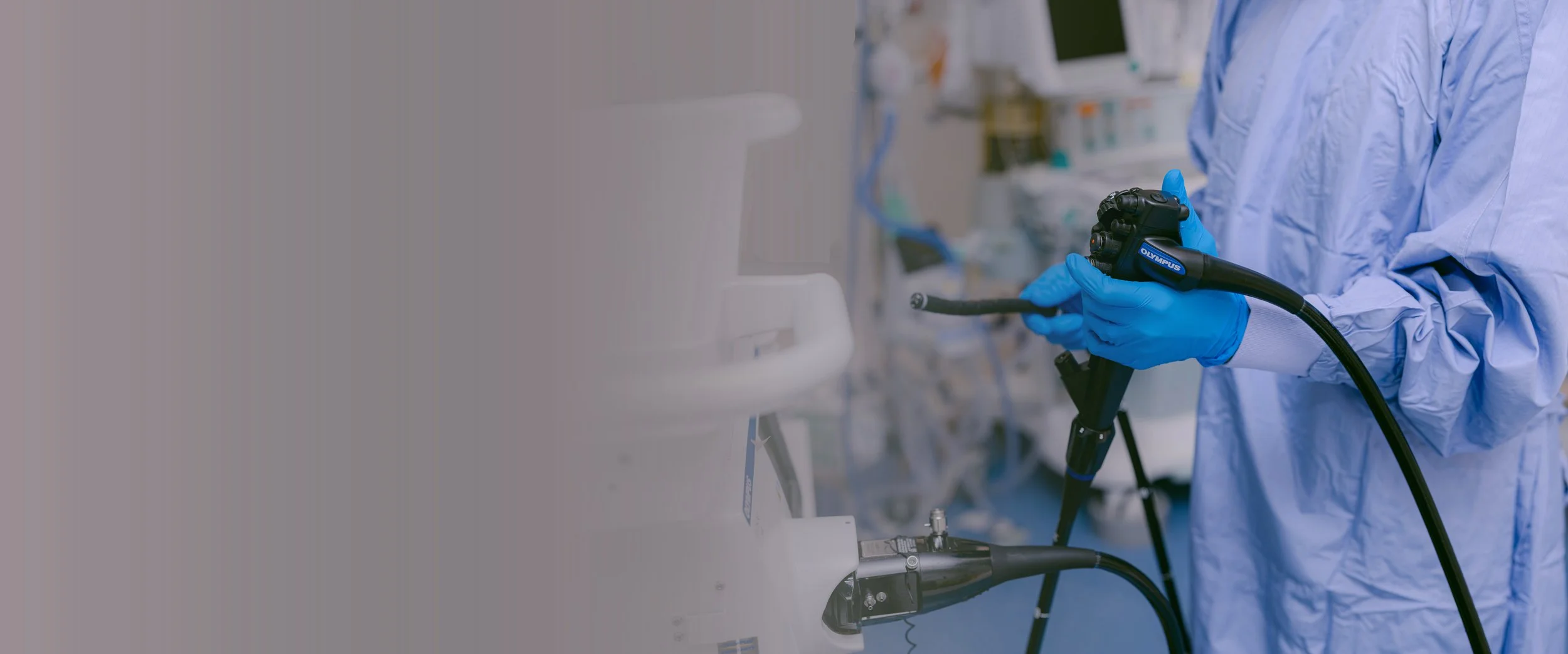Colonoscopy
OVERVIEW
What is a Colonoscopy?
A colonoscopy is a procedure that uses a colonoscope – a long, flexible tube with a camera at the tip – to examine the large intestine. It allows your doctor to inspect the colon and perform specialised procedures like biopsies and the removal of polyps.
Colonoscopy can detect conditions like, inflammation, ulcers, diverticular disease and abnormal growths or polyps. It is also used to check for early signs of colorectal cancer, including pre-cancerous polyps.
Common reasons for a colonoscopy include:
Changes in bowel habits
Abdominal pain
Bowel bleeding
Unexplained weight loss
For individuals with a family history of bowel cancer, colonoscopy can also serve as a screening test.
A colonoscopy is performed under deep sedation, administered by a specialist anaesthetist via an intravenous drip. The doctor inserts a colonoscope through the anus, guiding it into the colon while using a camera to inspect the lining. Dr Linda Yang routinely uses an AI-assisted system for polyp detection. If polyps are found, they are removed and sent for analysis, along with any tissue samples taken. You won’t feel the biopsies. The procedure typically takes 20 to 45 minutes.
Preparation for your colonoscopy
Bowel preparation is essential for a successful colonoscopy. Inadequate preparation can result in a poor view and may require a repeat procedure. The preparation includes:
"White Diet" starting 2 days before the procedure.
Bowel Preparation Medication to help clear your bowel.
Clear fluids (e.g., water, apple juice, black tea) are allowed up to 2 hours before the procedure.
Special Instructions:
If you are taking MOUNJARO, or WEGOVY, follow a liquid diet 24 hours prior to your procedure.
If you are diabetic or taking blood-thinning medications (Aspirin is fine), please inform our staff
Detailed instructions will be provided at the time of booking. Patient information will be also available for download through our Patient Hub online.
YOUR RECOVERY
After your colonoscopy
You'll be monitored until the sedative wears off, usually for 1-2 hours.
Eating: You can eat normally unless otherwise instructed by your doctor.
Post-Procedure Symptoms: You may feel bloated from air used during the procedure, and may experience minor bleeding.
Important Safety Instructions:
Due to the sedation, do not drive, operate machinery, or consume alcohol on the day of the procedure.
It is recommended that a friend or family member accompany you home.
Recovery time: Full recovery is expected by the following day..
Leonda Gastroenterology Melbourne
With Dr Linda Yang’s expertise and our modern facilities, you can be assured of receiving excellent, high-quality gastroenterology care.



